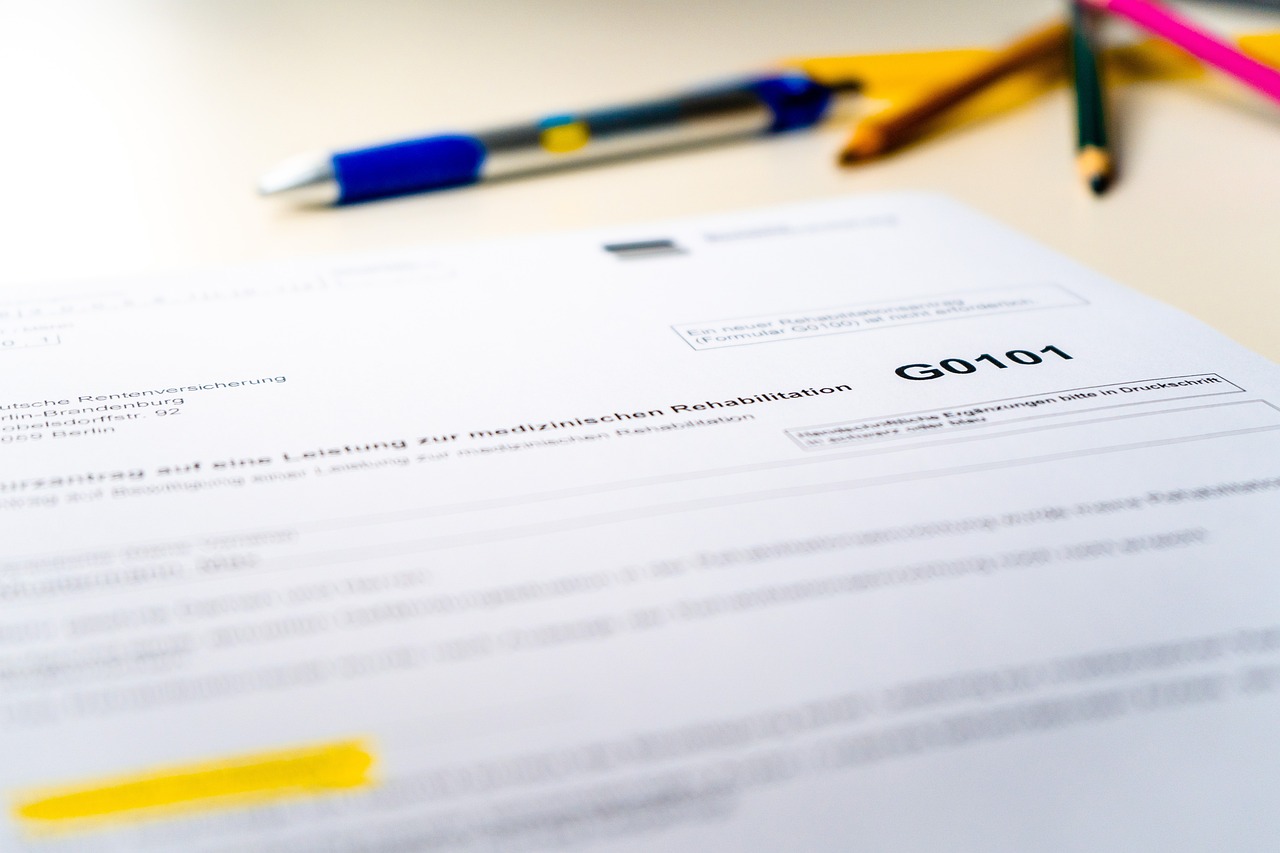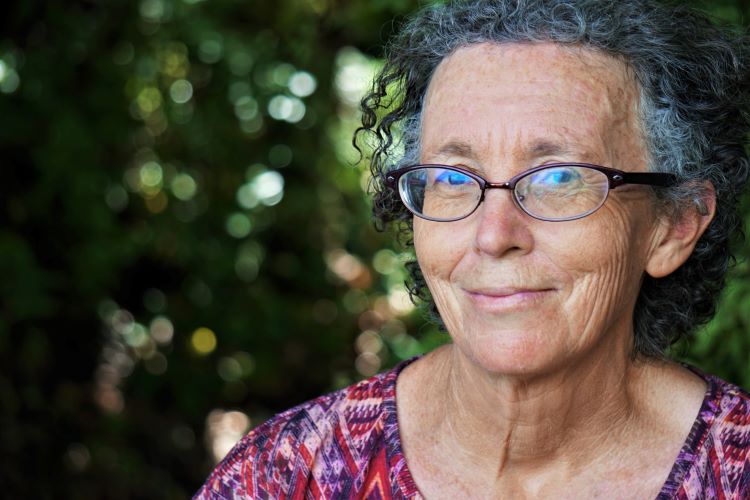Addiction is essentially a preoccupation or obsession that someone has with something. This can be a particular substance, such as alcohol or cocaine, for example.
Or, it can also be with a form of behaviour. If a subject is obsessed with actions related to porn addiction, sex addiction, gaming addiction, or gambling addiction, then they have a behavioural addiction.
There are conflicting views surrounding addiction, whether it is substance addiction or behavioural addiction.
While some people will downplay the severity of any form of addiction, there is sufficient neuroscientific evidence to support that addiction is in fact a disease of chronic brain relapsing due to severe chemical alterations in the brain.
At Rehab 4 Addiction, we offer free advice from a team of non-judgemental professionals, many of whom are in recovery and understand how hard can be to change your relationship with addiction.
Simply reach out to our 24/7, confidential hotline on 0800 140 4690.

When someone takes part in their addictive activity, in this case gambling, this will release chemicals in the brain which stimulate reward pathways.
The more that the subject engages in this activity, the more they come to rely on this form of behaviour in order to experience feelings of euphoria.
People suffering from behavioural addictions may even experience things such as an increased tolerance, cravings, or even withdrawal symptoms.
While it may not present the same physical symptoms as a substance use disorder, gambling addiction is included in the Diagnostic and Statistical Manual of Mental Disorders (5th Edition), or DSM-5, which is a manual of disorders utilised by clinicians in order to diagnose patients.
With this evidence that reinforces the severity of behavioural addictions, it is important to seek support from an addiction treatment centre in order to overcome this illness.
By contacting Rehab 4 Addiction, we can help you take the necessary steps in order to return to a life of normalcy and optimal well being.

Gambling addiction is especially prevalent in the United Kingdom. The country has one of the biggest gambling markets in the world which generated a profit of around £14.2 billion in 2020.
A UK Government study discovered that in 2018, almost 25 million people in the country gambled, whether through the National Lottery, sports betting, electronic gaming, betting casinos, or else. This amounts to over half of the adult population.
The same study estimated that around 0.5% of the population in the United Kingdom were considered to be problem gamblers, with a further 3.8% being at-risk gamblers.
It was estimated that from April to December 2021, around 668 people with severe addictions were referred to NHS services for treatment. This was a significant increase from the previous year.
In addition to the people who actually sought support from a rehabilitation centre for their addiction, it is estimated that almost a quarter of a million people in the United Kingdom suffer from gambling addiction.
Furthermore, another 2,200,000 people are gamblers who are at risk of developing an addiction.
While studies suggest that most compulsive gamblers are male, women are likely to be affected just as much as their male counterparts who are suffering from addiction.
This is because when someone is suffering from an addiction, it has a profound impact on immediate family members.

Out of people who share close connections with an addicted person, many report negative incidents and experiences which significantly affected their lives.
It is estimated that 48% of people who had a partner with this addiction report that their loved one’s addiction directly affected them.
A further 41% of parents and another 38% of children of addicted parents reporting similar negative experiences which affected their lives.
One of the most direct and profound effects is the financial harms related to gambling addictions.
Regardless of whether subjects are finding success in their gambling habits, they will continue to risk their money if they are suffering from an addiction.
At Rehab 4 Addiction, we offer free advice from a team of non-judgemental professionals, many of whom are in recovery and understand how hard can be to change your relationship with addiction.
Simply reach out to our 24/7, confidential hotline on 0800 140 4690.

This can inevitably lead to lack of funds, financial stress and insecurity, debt, and more.
A study conducted by the UK government even discovered that an area which saw an increase in electronic gaming and gambling venues led to an increased number of bankruptcies in the area.
Furthermore, addiction leads to other personal problems such as relationship breakdowns, physical problems, mental health problems, and more.
With less money, partners will also experience financial insecurity, as will their children, who will eventually be deprived of security and other opportunities due to the addicted person’s gambling.
There is also considerable evidence to suggest that gambling-related debt often leads to self-harm, domestic violence, and other forms of crime.

Subjects who appear to have an underactive brain reward system are more susceptible to developing addictions such as substance use disorder or gambling disorder.
Studies suggest that pathological gambling is linked to reduced activation in the mesolimbic pathway of the brain, also known as the reward pathway.
What this means is that people who have an underactive reward pathway may be more susceptible to thrill seeking activities and impulsivity in order to activate these reward pathways.
At Rehab 4 Addiction, we offer free advice from a team of non-judgemental professionals, many of whom are in recovery and understand how hard can be to change your relationship with addiction.
Simply reach out to our 24/7, confidential hotline on 0800 140 4690.

While many people will be happy with regular activities and can moderate their behaviour, those with an underactive reward pathway may need to do more in order to feel the same level of euphoria.
When the subject experiences a release of dopamine in the brain due to their gambling habits, they will continue to indulge in gambling, and they may even increase their time spent gambling in order to sustain their ‘high’.
Some subjects may even feel this ‘high’ even when they lose.
As a result, the subject and their brain begins to associate gambling with reward.
An alteration in the brain will take place through the forging of new reward pathways, making it much more difficult to abstain from gambling, because it is already embedded as an addictive form of behaviour.

Since gambling has a huge market in the United Kingdom and globally, whether it comes in the form of the lottery, sports betting, casinos, and so on, it is incredibly accessible to the public.
This makes it even more difficult to come out and seek support because people are fearful that their concerns will not be taken seriously.
However, gambling addiction is a serious concern which requires thorough treatment.
At Rehab 4 Addiction, we offer free advice from a team of non-judgemental professionals, many of whom are in recovery and understand how hard can be to change your relationship with addiction.
Simply reach out to our 24/7, confidential hotline on 0800 140 4690.

Rehab 4 Addiction can help you by taking the necessary steps in order to ensure that you receive adequate support.
Only when you are ready will we conduct a health and pre admission assessment in order to understand what kind of treatment you require.
During the health assessment, we will ask you questions about your physical and mental health, your medical history, your gambling habits, and so on.
It is important to note that this will be done with complete discretion, and we are forbidden to share your information without your consent.
By reviewing your medical information, physical and mental health history, and your addiction, a consultant psychiatrist will be able to identify problems which may have led or exacerbated your addiction.
They will then devise a personalised plan in order to optimise your recovery.
The health assessment will be done completely free of charge and over the phone.
In-person appointments are not required, which means that subjects can initiate the process as soon as they desire.

Clinicians often use the DSM-5 Criteria, a multidimensional screening tool, in order to diagnose someone who may be suffering from a behavioural or substance addiction.
The DSM-5 Criteria is heavily revised and often updated in order to optimise the diagnosis and treatment methods for subjects suffering from addiction.
While the concept of addiction was formerly only concerned with substance addiction, the DSM-5 Criteria now recognises behavioural addictions.
Gambling disorders are especially recognised, where patients are also prone to experiencing the phenomena of tolerance, withdrawal, and cravings, much like substance use disorder.
According to the assessment, there are many symptoms which are associated with addiction.
These symptoms can be categorised into classes such as impaired control, risky use, social problems.
At Rehab 4 Addiction, we offer free advice from a team of non-judgemental professionals, many of whom are in recovery and understand how hard can be to change your relationship with addiction.
Simply reach out to our 24/7, confidential hotline on 0800 140 4690.

These symptoms are:

There are many variables when it comes to assessing someone’s behavioural addiction.
While one person may gamble higher stakes (e.g. more money), another person may gamble more frequently, and another may prioritise gambling over other aspects of their life.
Factors vary drastically from one addicted person to the other, therefore it is necessary to thoroughly assess their behaviours in order to determine the kind of care that they require.
At Rehab 4 Addiction, we offer free advice from a team of non-judgemental professionals, many of whom are in recovery and understand how hard can be to change your relationship with addiction.
Simply reach out to our 24/7, confidential hotline on 0800 140 4690.

According to studies conducted by the UK Government, there was a strong correlation between harmful gambling habits and adults (particularly males) who suffered from substance use disorder.
This includes alcohol and drug addictions, as well as mental health issues (e.g. anxiety or depression), and more.
At Rehab 4 Addiction, we offer free advice from a team of non-judgemental professionals, many of whom are in recovery and understand how hard can be to change your relationship with addiction.
Simply reach out to our 24/7, confidential hotline on 0800 140 4690.

The same study discovered that there is a clear correlation between gambling (in moderate quantities or in the form of addictions) and an increased consumption of alcohol.
Another study conducted by the National Institute on Alcohol Abuse and Alcoholism also discovered that harmful gambling is more prevalent in those suffering from alcohol addiction than those who do not.
Alcohol in particular has a strong link with gambling because casinos not only promote gambling but offer alcoholic beverages.
This means that subjects may associate gambling with alcohol, and vice versa, and begin to indulge in both activities simultaneously.
Furthermore, alcohol lowers inhibitions and leads to poor judgements and decision making.
It severely impacts what people do and what they perceive to be reasonable or rational.
If a subject is suffering from alcoholism and also takes part in gambling activities, they are more likely to gamble away their money in higher quantities and more frequently.
This can lead to financial related stress, which may then lead to more alcohol consumption in order to find relief.
While alcohol use disorder is the most commonly associated illness with this addiction.
 Similar to substance addictions, there is a strong correlation between gambling addiction and mental health issues.
Similar to substance addictions, there is a strong correlation between gambling addiction and mental health issues.
These mental health issues include depression, anxiety, suicidal ideation, insomnia, and more.
Anxiety and depression were the most common mental issues associated with addiction.
While it is not entirely certain in cases which disorder leads to the other, it is concerning that both addiction and mental health issues are so frequently associated.
If a subject is suffering from anxiety or depression, they may turn towards gambling in order to experience feelings of euphoria associated with addiction.
At Rehab 4 Addiction, we offer free advice from a team of non-judgemental professionals, many of whom are in recovery and understand how hard can be to change your relationship with addiction.
Simply reach out to our 24/7, confidential hotline on 0800 140 4690.

On the other hand, gambling may lead to feelings of anxiety, guilt, depression, and more because it is the cause of financial issues and insecurity.
The rate of deaths due to suicide is higher among adults who are suffering from gambling addiction or harmful gambling activities is significantly higher than in adults who do not have gambling urges.
At Rehab 4 Addiction, we offer free advice from a team of non-judgemental professionals, many of whom are in recovery and understand how hard can be to change your relationship with addiction.
Simply reach out to our 24/7, confidential hotline on 0800 140 4690.

If a patient is diagnosed with addiction and another form of illness, they will be able to undergo co-occurring treatment.
Rather than emphasising one illness throughout treatment, patients will be able to undergo co-occurring treatment for both conditions.
Because one illness can have a profound effect on the other, it is important that both illnesses are addressed concurrently, rather than addressing one after another.
Gambling addiction is heavily associated with anxiety, depression, bipolar disorder, and more.
A personalised treatment plan will take into account the additional needs of the patient, and they will undergo a range of therapies at rehab as an inpatient or as an outpatient.

It is estimated that 45% of people who are indirectly suffering from a gambling addiction seek advice from professional or non-professional entities.
People may look to support themselves, or find help for a loved one suffering from addiction.
If you are being affected by someone else’s gambling disorder, or you are concerned for a friend or family member suffering from gambling addiction, you can contact us here at Rehab 4 Addiction.
At Rehab 4 Addiction, we can help you by assigning a professional interventionist.
An intervention can be a powerful tool in convincing someone to seek treatment for their addictive behaviours.
It is not an option to enter someone else into treatment, patients are required to voluntarily undergo addiction treatment.
At Rehab 4 Addiction, we offer free advice from a team of non-judgemental professionals, many of whom are in recovery and understand how hard can be to change your relationship with addiction.
Simply reach out to our 24/7, confidential hotline on 0800 140 4690.

What an intervention can do, however, is use friends and family members in order to convince someone to undergo treatment.
While many people do seek treatment through their own intrinsic motivation, others may require the influence of extrinsic motivations in order to make the decision to receive addiction treatment.
An intervention can create a safe and non-judgemental environment for friends and family members to express their concerns about their loved one’s addiction.
Rather than being confrontational, friends and family members should express how they care for the addicted person and how their concern comes from genuine compassion and worry.
Friends and family members will then proceed to express their thoughts and feelings about their loved one’s gambling habits.
In order to reinforce their concerns, they are encouraged to utilise specific examples of how their gambling addiction is not only affecting him or herself but friends and family.

Should an addicted person listen to his or her close friends or family members explain how their gambling addiction specifically affects them, it will be difficult for them to continue denying its impact.
This can help people to come to realise and accept that they need to seek treatment.
These examples should help the addicted person realise the extent of negative consequences that their disorder has, and how its effects will only progressively get worse.
It is estimated that interventions, when conducted by a licensed professional, have a success rate of 80 to 90%.
This means that 8 or 9 addicted people out of 10 end up undergoing addiction treatment following an intervention session.
It is important to use the support of a licensed interventionist in order to maximise productivity at an intervention.
At Rehab 4 Addiction, we offer free advice from a team of non-judgemental professionals, many of whom are in recovery and understand how hard can be to change your relationship with addiction.
Simply reach out to our 24/7, confidential hotline on 0800 140 4690.

The licensed interventionist will help with necessary stages such as:

Addiction treatment programmes will also employ relapse prevention planning methods in order to help patients develop healthier coping habits.
While they may overcome their gambling addiction through therapy and counselling, they will need to learn to stay in recovery by preventing relapses. One popular method is HALT, which stands for:
At Rehab 4 Addiction, we offer free advice from a team of non-judgemental professionals, many of whom are in recovery and understand how hard can be to change your relationship with addiction.
Simply reach out to our 24/7, confidential hotline on 0800 140 4690.

Alongside having ‘conditions’ which will make you choose against resuming your gambling habits, patients can remember to HALT if they recognise that they are hungry, angry, lonely, or tired.
When they recognise that they are not feeling optimal, patients will be able to employ positive and healthy coping mechanisms in order to prevent a relapse.
In order to receive support for your gambling addiction, you can contact our experienced team at Rehab 4 Addiction.
At Rehab 4 Addiction, we offer free advice from a team of non-judgemental professionals, many of whom are in recovery and understand how hard can be to change your relationship with addiction.
Simply reach out to our 24/7, confidential hotline on 0800 140 4690.

[1] Behavioural Addictions and the Transition from DSM-IV-TR to DSM-V https://www.jpsychopathol.it/wp-content/uploads/2015/12/12_Art_ORIGINALE_Pinna1.pdf
[2] Diagnostic and Statistical Manual of Mental Disorders https://psychiatry.org/psychiatrists/practice/dsm
[3] Gambling-Related Harms Evidence Review: Summary – GOV.UK https://www.gov.uk/government/publications/gambling-related-harms-evidence-review/gambling-related-harms-evidence-review-summary
[4] NHS Launches New Gambling Addiction Clinics to Meet Record Demand https://www.england.nhs.uk/2022/02/nhs-launches-new-gambling-addiction-clinics-to-meet-record-demand/
[5] Pathological Gambling is Linked to Reduced Activation of the Mesolimbic Reward System https://pubmed.ncbi.nlm.nih.gov/15643429/
[6] Pathological Gambling and Alcohol Use Disorder https://web.archive.org/web/20220521083004/https://pubs.niaaa.nih.gov/publications/arh26-2/143-150.htm
[7] Why Alcohol Lowers Inhibitions and Leads to Bad Decisions https://alcohol.org/effects/inhibitions/
[8] Intervention – What is the Success Rate? https://www.associationofinterventionspecialists.org/intervention-what-is-the-success-rate/